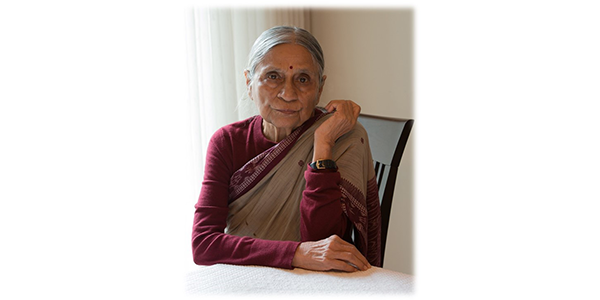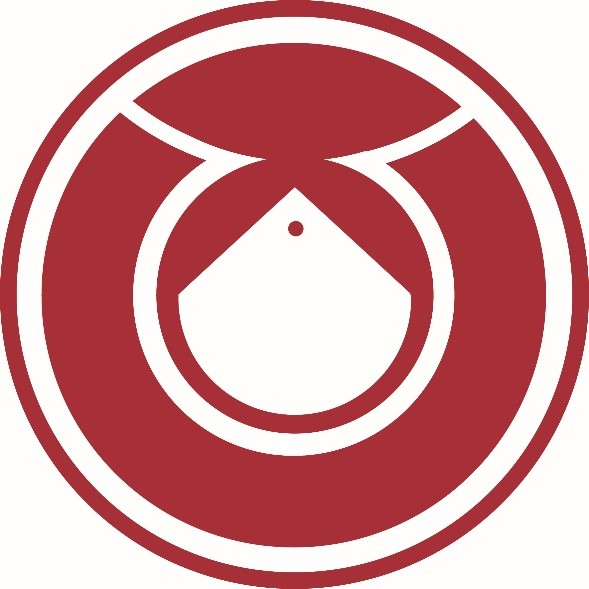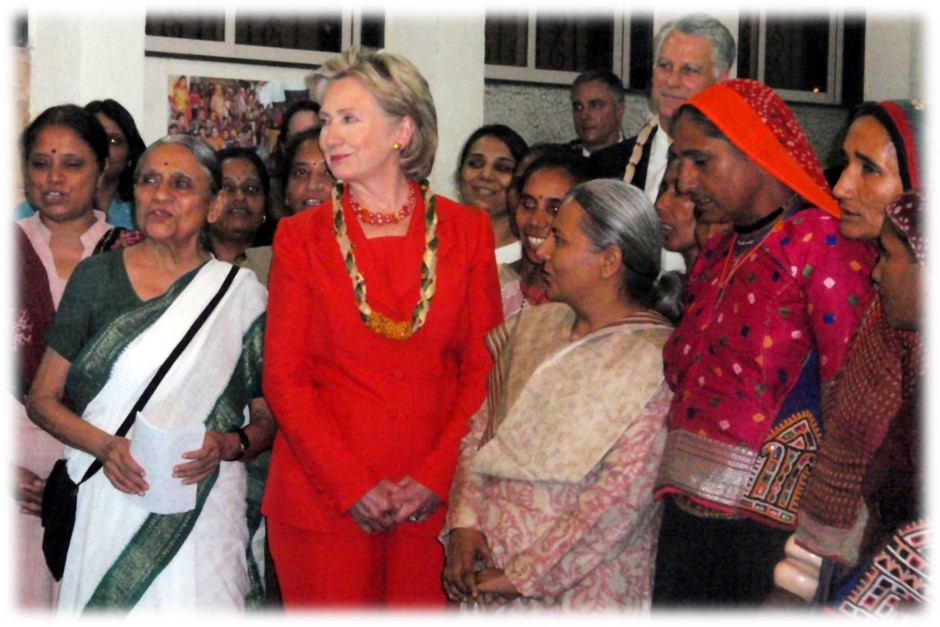
A Gandhian, an Indian cooperative organiser and an activist, Ela Bhatt is the woman behind Self-employed Women’s Association of India (SEWA). SEWA was started in 1972 as a trade union which represented female textile workers in India who were self-employed. Born in Ahmedabad, Bhatt is the daughter of a successful lawyer and a strong activist for women’s rights in India. She received her bachelor’s degree in English and then in law, specialising in Hindu Law. She taught English for a while at SNDT Women’s University before she joined the Textile Labour Association (TLA) in 1955. In 1968, Bhatt was asked to head the TLA Women’s Wing, for which she went to Tel Aviv and studied for a diploma in Labor and Cooperatives.
The main aim of this Women’s Wing, which was formed in 1954 by Anasuya Sarabhai, was to facilitate and help the women who lived in the households of mill workers. The Wing focussed on training these women in different skills such as sewing, knitting, press composition typing and stenography. The wing only grew bigger when it was realised that women were not being given their fair share at their workplace.
In 1971, a group of women working as cart-pullers visited the women’s wing of TLA in hopes to get better accommodation. After talking to them, Ela Bhatt visited the market area they worked in. Over there, she chanced upon another group of women, head-loaders this time, and spoke to them about jobs and their irregular wages. This meeting led to the publishing of an article by Bhatt in the local newspaper, who wrote a detailed piece about the problems of the head-loaders. Many merchants, to save themselves, published a counter article claiming fair treatment of their workers. The Women’s Wing used that as a leverage and printed the claims made by the merchants on cards and distributed them.
As the success story of the ploy spread, a group of used garment dealers approached the Women’s Wing to voice their dilemma. Later, a public meeting with these used garment dealers was arranged, where over a hundred women were present. It was at this meeting that a woman suggested they form an association. After a few doubts and hurdles, SEWA was formed in December 1971, and put to action in 1972. Ela Bhatt became the general-secretary and Arvind Buch, the President of TLA, became the President of SEWA as well. Today, SEWA is a trade union organised by women working outside a traditional set-up of employer-employee. The organisation is for women workers whose demands are not being met by conventional labour unions. The main goals of SEWA are to provide employment and self-reliance to its members, to be able to facilitate development and curb poverty. SEWA members were organised into groups based on their occupation as well as other groups like producers’ group, rural savings and credit groups. Beyond that, the organisation helped address issues like housing, child care, education, healthcare and violence against women. SEWA also provided banking facilities to its members.

Image:SEWA logo
In fact, the first cooperative bank established by SEWA was opened by Bhatt herself in the year 1974, which provided women with loans to start their own businesses. It also helped these women in financial counselling, in terms of guiding them in their ventures. She also co-founded the Women’s World Banking in 1979, which is a global network of microfinancing that assists women across the globe in terms of setting up their small business. She served as the chairman of the organisation from 1984 and 1988 and was a member of the Rajya Sabha where she chaired held position till 1989. While in Parliament, she was the head of the National Commission on Self-Employed Women and was in-charge of investigating female workers and their conditions.

Image:SEWA Hansiba Store; with Hillary Clinton
She has been a part of other such organisations and has also assisted the World Bank on microfinancing. She is a co-founding member of The Elders, which comprises of 12 world leaders. The aim of this group is to work towards solving human violence and suffering while using peaceful methods. The group has leaders like Muhammad Younus, Kofi Annan, Gro Harlem Brundtland and Hira Jilani. They have worked on matters such as climate change, poverty and political conflicts; like the Israeli-Palestinian struggle. As a part of The Elders, Ela Bhatt works on issues revolving around equality for women and girls and fights against child marriage. She has travelled to Middle-East and in 2010 visited Gaza to spread the message of non-violence and to urge people to use peace as a method of solving whatever issues may exist.
Over the years, she has received many honorary degrees and awards for her work. In 1977 she was awarded the Ramon Magsaysay Award for Community Leadership. She was given the Padma Shri in 1985 by the Government of India and a Padma Bhushan in 1986. In June 2001, Harvard University granted her an honorary degree in Humane Letters. In 2010, she received the first ever Global Fairness Initiative Award for her work with the underprivileged women of India. She has authored books such as, ‘We are Poor but So Many: The Story of Self-Employed Women in India’, ‘Anubandh: Building Hundred Mile Communities’ and ‘Grind of Work’. These have been translated to languages like Urdu, Hindi, Gujarati and Tamil, for widespread readership.
It wouldn’t be amiss to say Ela Bhatt is the epitome of what a gentle but effective leader should be. She took the cause of women which was at a micro-level and created an awareness about it at a macro-level, to help a silent community. Her dedication to the cause of empowering women has led to millions of women becoming self-employed and independent. This has not only helped the female population, but also the economy of the country. Her balanced take on human ecosystem has made her one of the strongest voices of peace and non-violence in the world. She is a sheer inspiration to the world, at a stage where imbalance prevails and we all strive for equilibrium.

